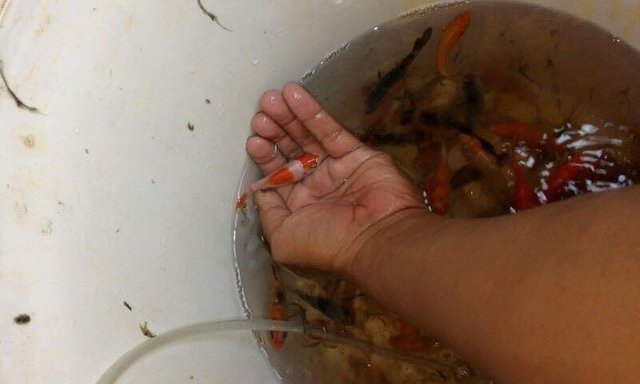ways of selection of quality koi fish and spawning
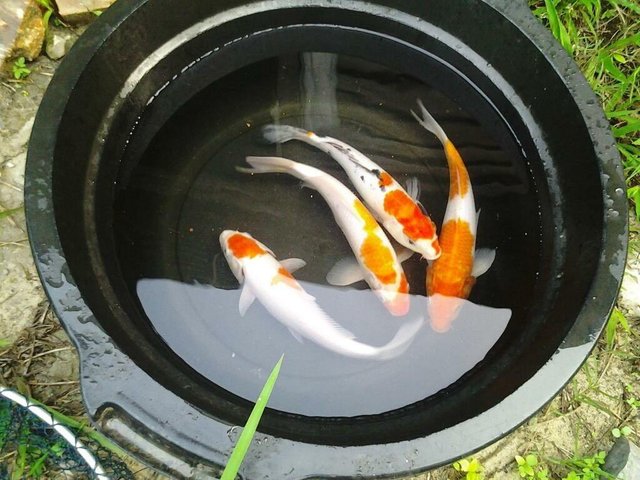
Why are good Koi so expensive? The answer is because the selection process to get good quality koi is very long and complicated. Of the thousands of chicks that hatch only a few who pass the selection in the category of good koi. Koi that meet certain rules in judging. Koi that have good koi standard specifications are very rare among the thousands of tosai (koi puppies). Koi is included in the choice is the best koi. Koi spawning process (Breeding Koi) begins with choosing good koi breeders, mentukan pair, then spawning process. After the koi spawning process produces the next koi puppies is a step by step selection process in various sizes of koi fish. The selection process will produce koi fish with various qualities. Koi with the best quality will be expensive and become the winner in koi champion. Koi who do not pass the selection to koi show quality will be a koi class pond (Pond Quality), Ornamental Quality even vegetable class.
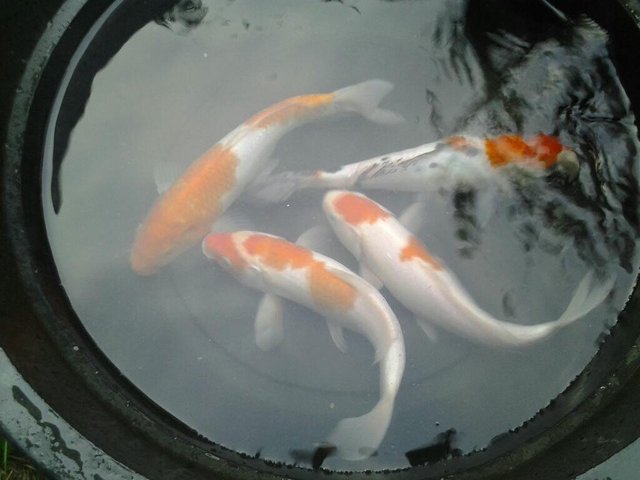
Choosing Koi Individuals
Koi is chosen as the parent if it is really aged enough to be breed. Koi age is ready for spawning for about two years. Ideally Koi females should be carrying eggs in their stomach for 6 to 9 months. In addition, female breeders should have good posture, because female breeders will have the most important role for the body shape of koi puppies. The female breed also ideally has a jumbo size, about 75 cm. Male breeders must have brilliant quality of skin and color. Male male koi size can be smaller than female. Male and female ratios are 1 male 2-3 males. The number of koi eggs is about 100,000 per kilogram of body weight. When the female Koi starts to mature the eggs in their body cavities will appear to start swelling and filling around the stomach, if pressed slowly will come out the eggs. On the male side if pressed on the stomach will come out white liquid.
breeding-koi
Koi Breeding Process, Koi Will Put Eggs On Root Enceng Mumps
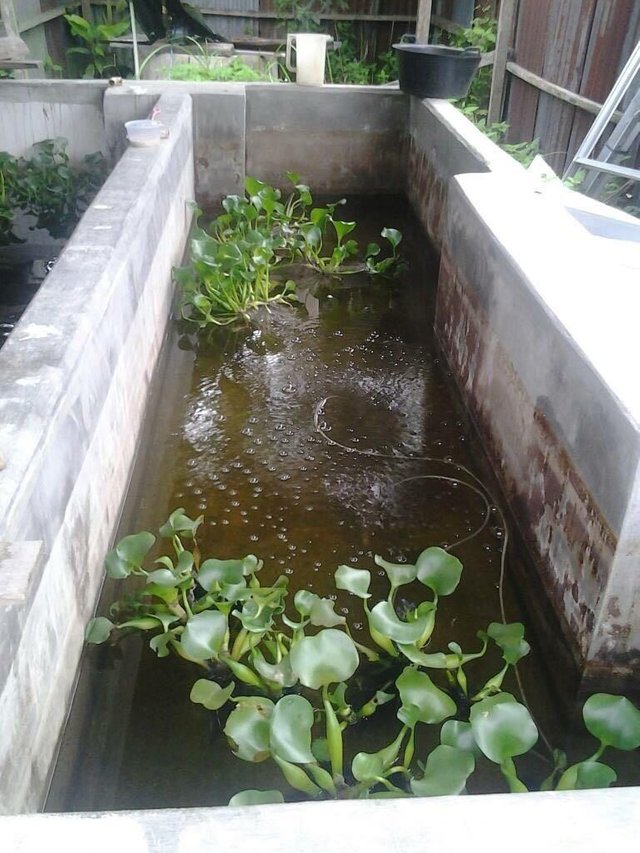
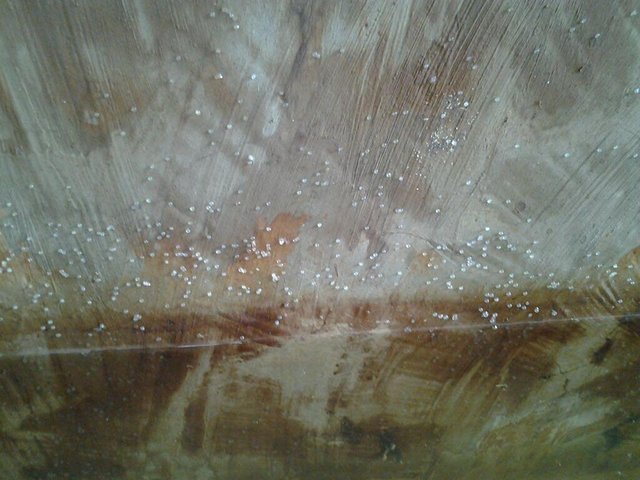
Koi spawning process
Koi will try to spawn if the water is warm, the temperature is 20 c. The female Koi will lay her eggs on the drowned grass in a koi pond or weed plant such as water hyacinth or artificial substrates. If no weeds or submerged grass are submerged in ponds, it is necessary to add artificial media (kakaban), a substrate made of several raffia ropes or fibers. The addition of this medium will encourage koi to remove its eggs. It is usually best to add this medium a week before the Koi lay eggs. The female koi prepares to lay eggs on the medium while the male koi will follow and cover the female koi to fertilize the issued eggs. The female Koi will sometimes stop and clean the pool side in an attempt to clear the area where she can lay her eggs. During the spawning time it is attempted so that the environmental situation is calm and should leave the fish during the spawning process.
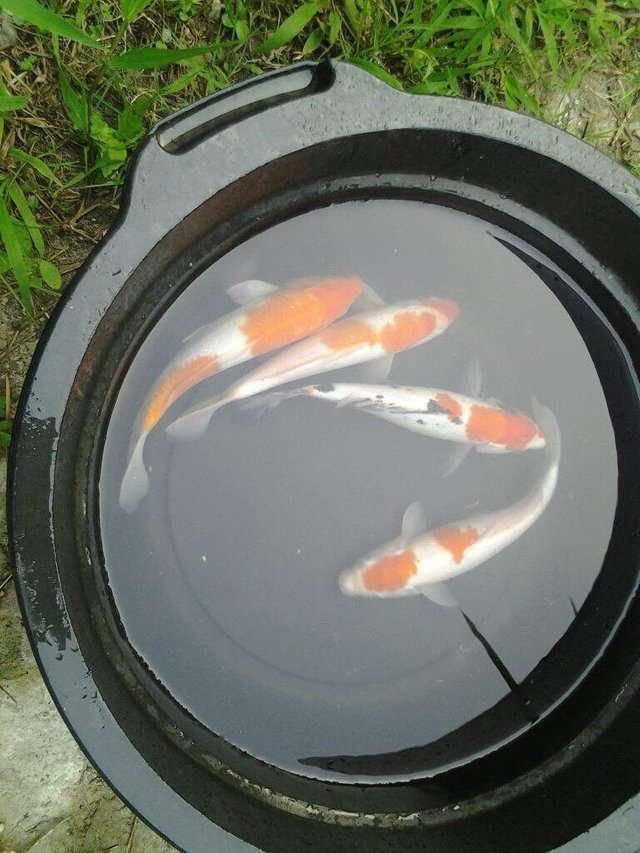
Also make sure there are no dangerous and sharp objects in the pond such as flower pots, rocks so as not to injure koi fish during spawning. Providing devices such as fountains and waterfalls will help stimulate the koi fish to remove its eggs. Your female fish will run through the spawning substrate, attracting the attention of the male fish, which will always follow at a distance as close as possible. After a while, the female fish will put the eggs into the substrate and the male fish will fertilize them. Eggs should be fertilized within 20 seconds from the time placed on the media, so the male fish must be very close and ready once the eggs are removed. Once they are done laying, the female will hang his head down, and the other fish will become less excited. Koi should be removed from the spawning site immediately because they will eat the eggs that are removed.
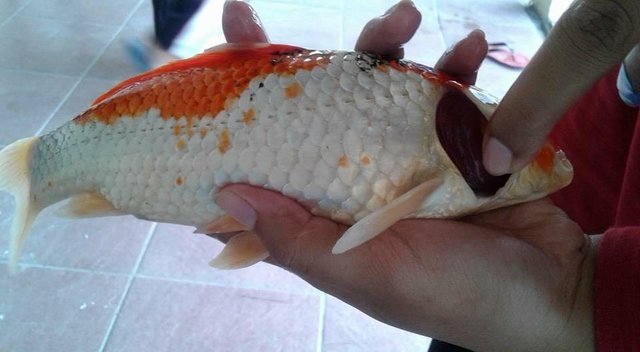
Incubation and Hatching Period
After the spawning process is complete, the breeding is separated from the eggs, eggs in incubation to wait to hatch. Eggs that have fertilized eggs will hatch in 4-5 days. Koi burials will instinctively seek refuge and hide in every cover they can find. In the early days of this hatch koi burial will eat from the food reserves that exist in the next egg We can give boiled egg yolk for as food for the first. In addition can also be given shrimp larvae or silkworms. Silkworms are good food and high value for koi burials.
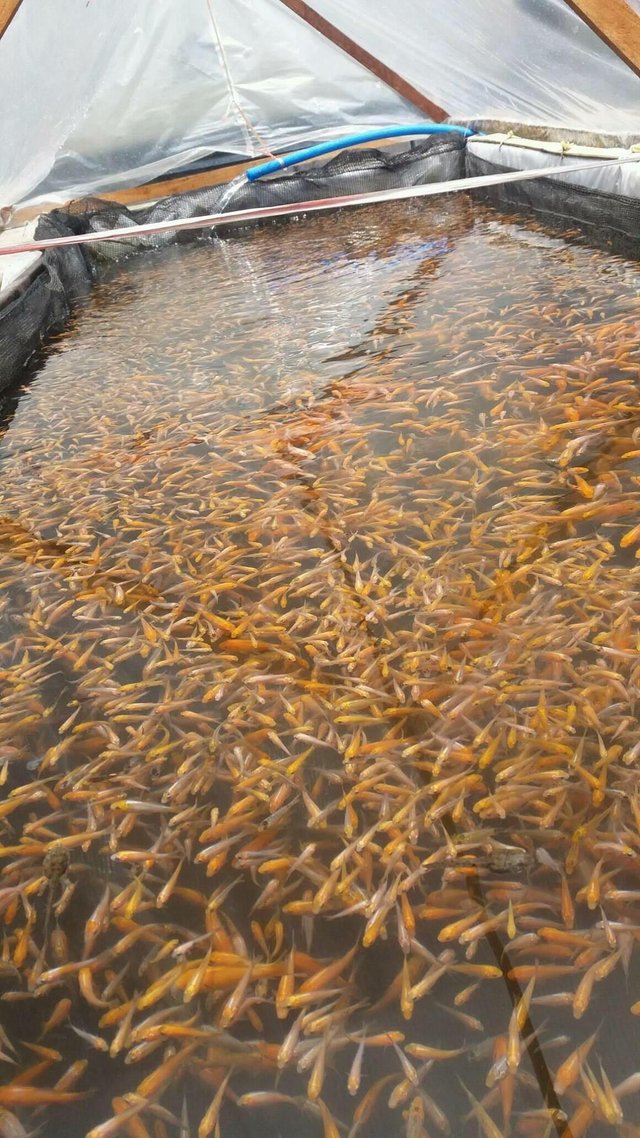
After a week of koi can be given a pellet of pasta or a powder of a large size pellet. In addition to foods with high nutrients it is necessary to clean the pond from the dirt, buried a dead koi and ammonia in a way to replace the water partly on a regular basis. After the age of 3 to 4 weeks kayaking koi burayak will grow.
